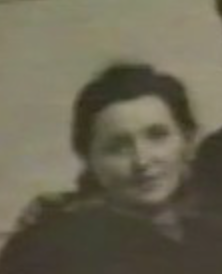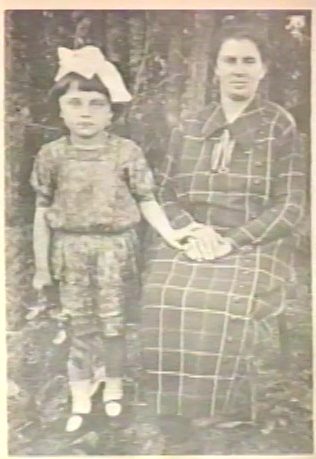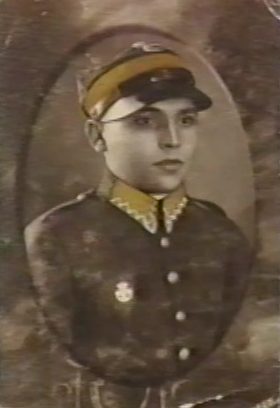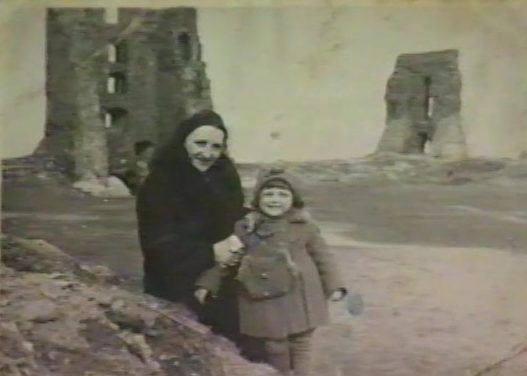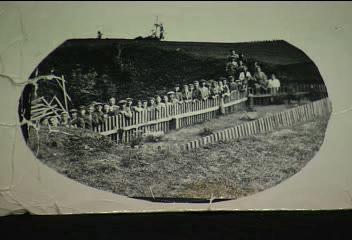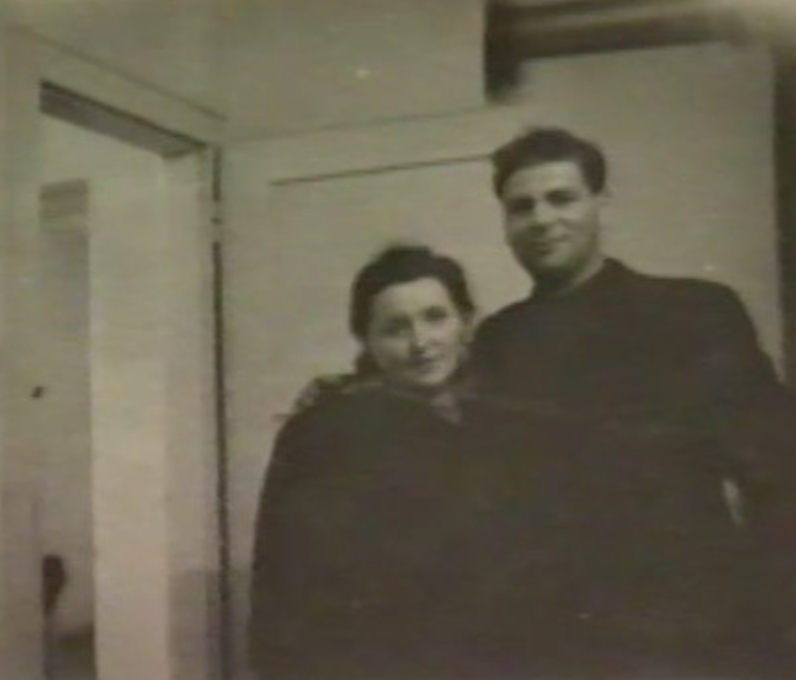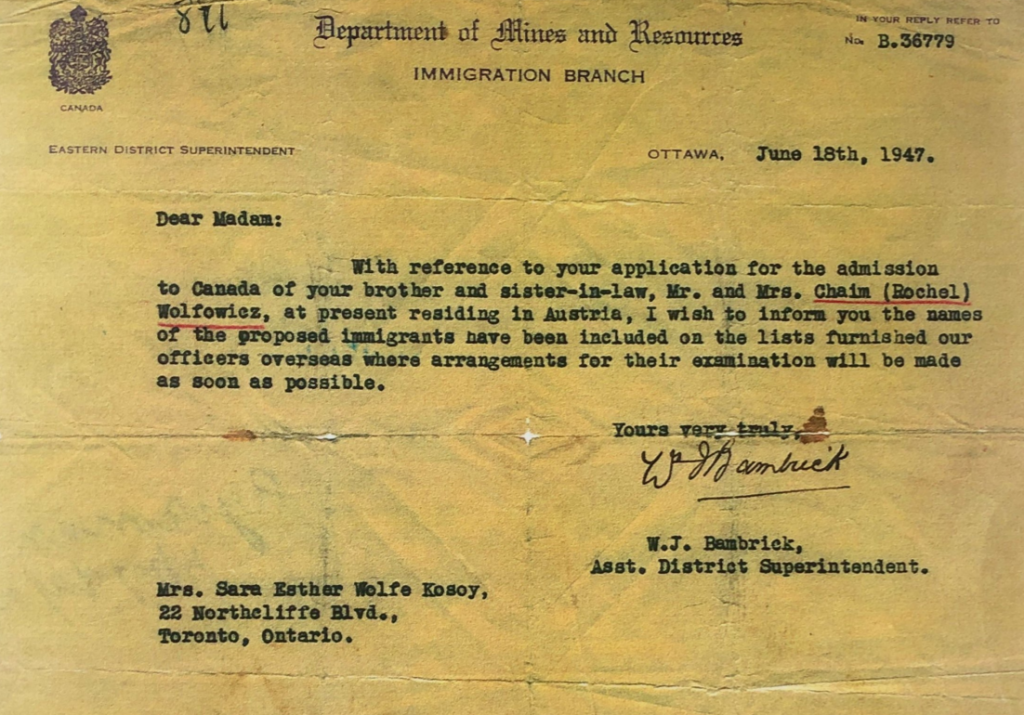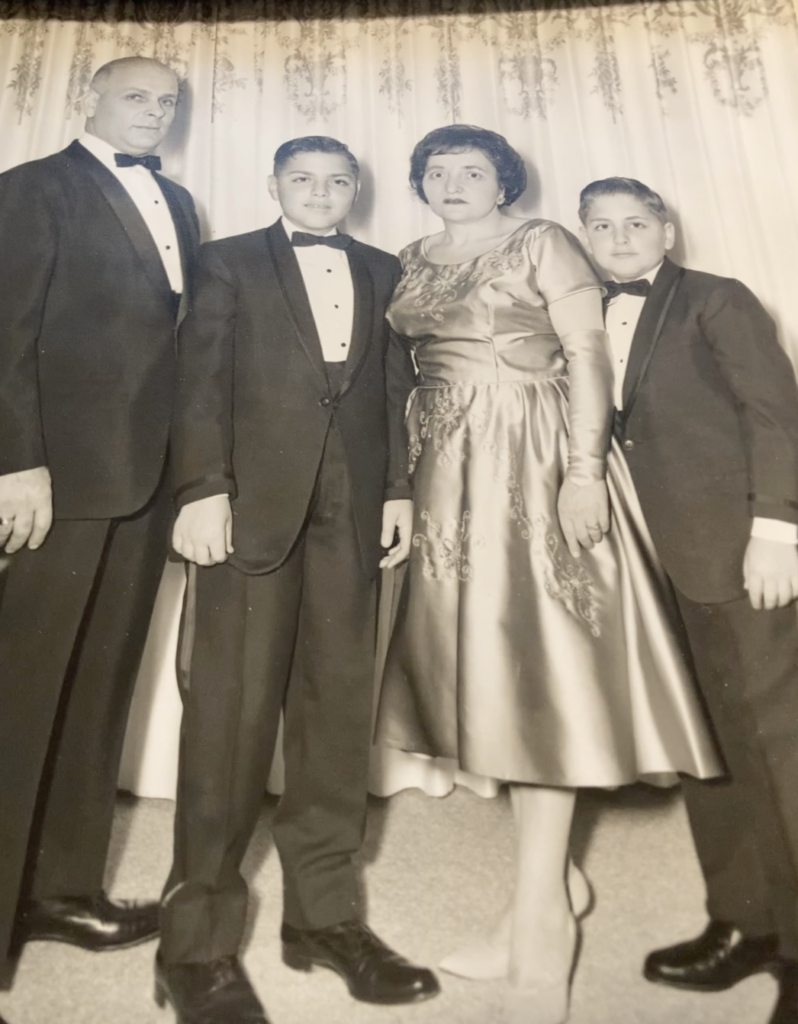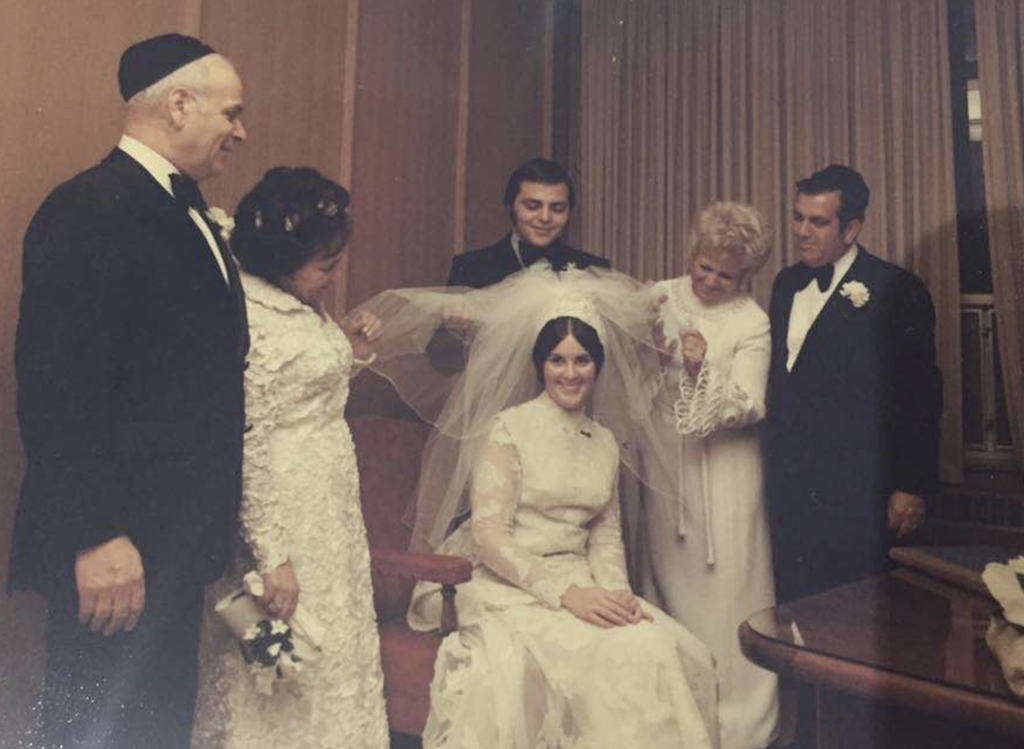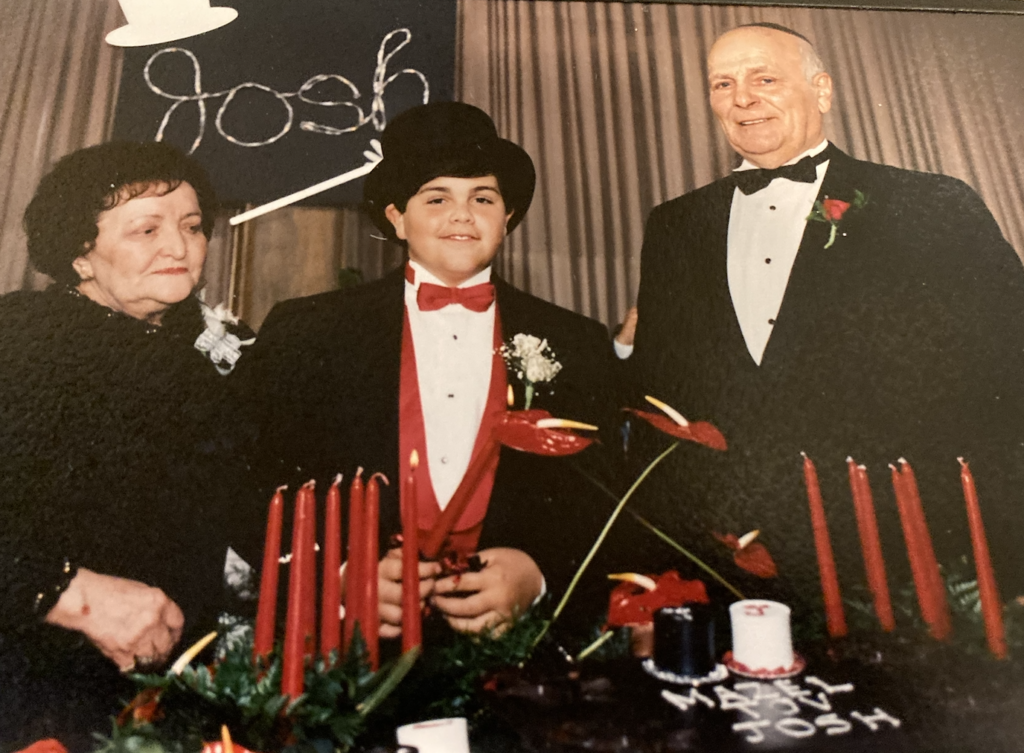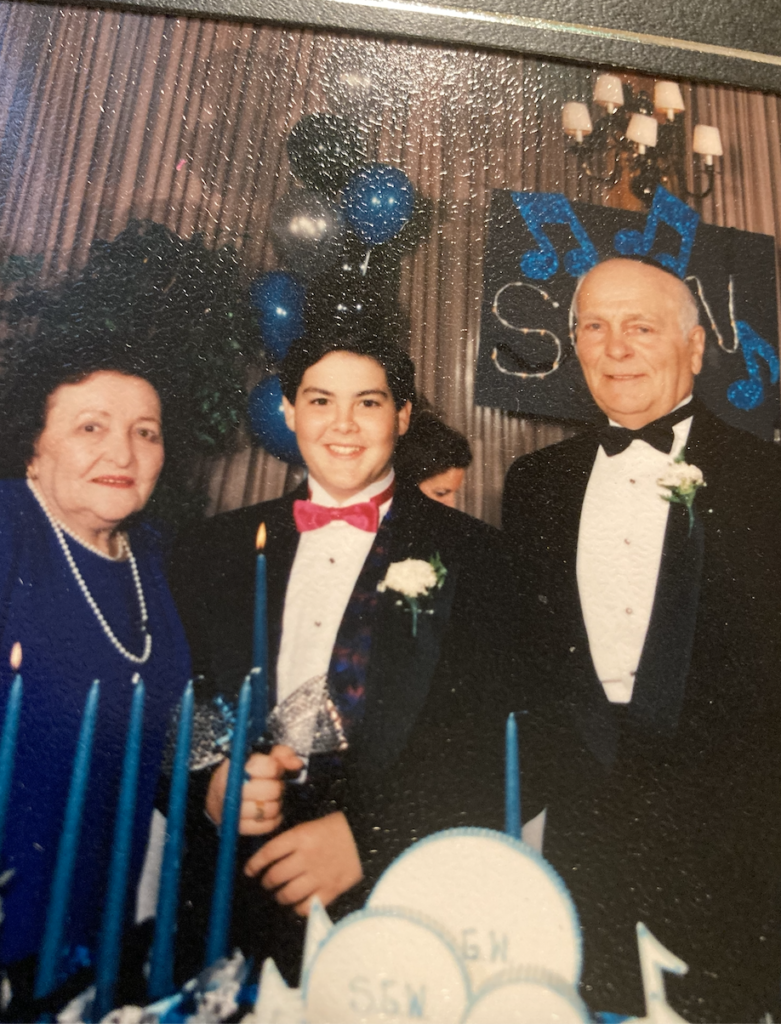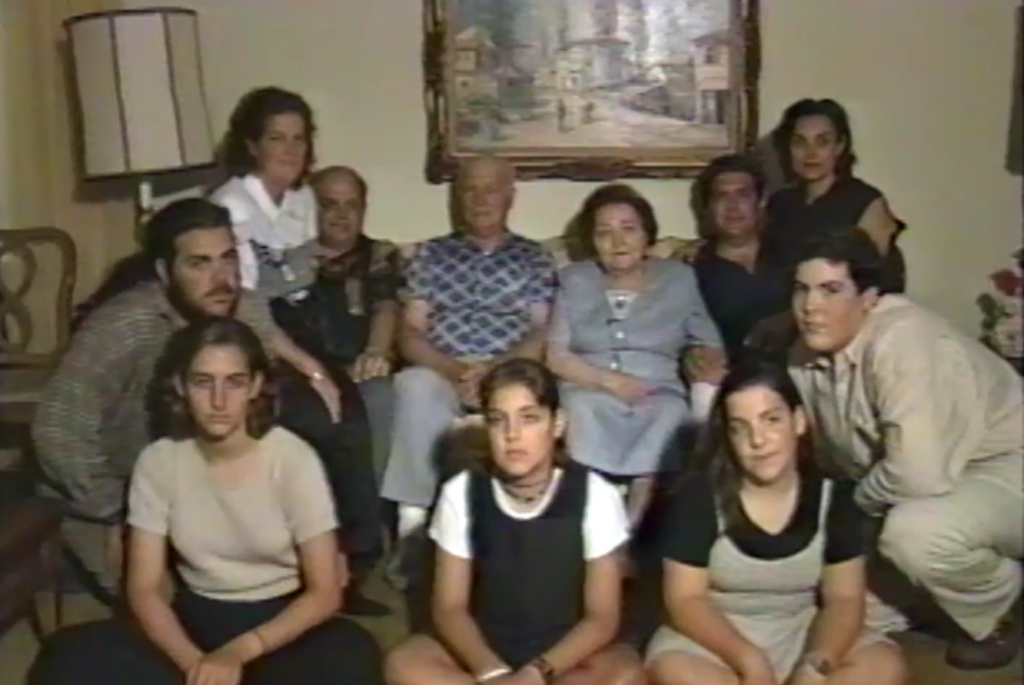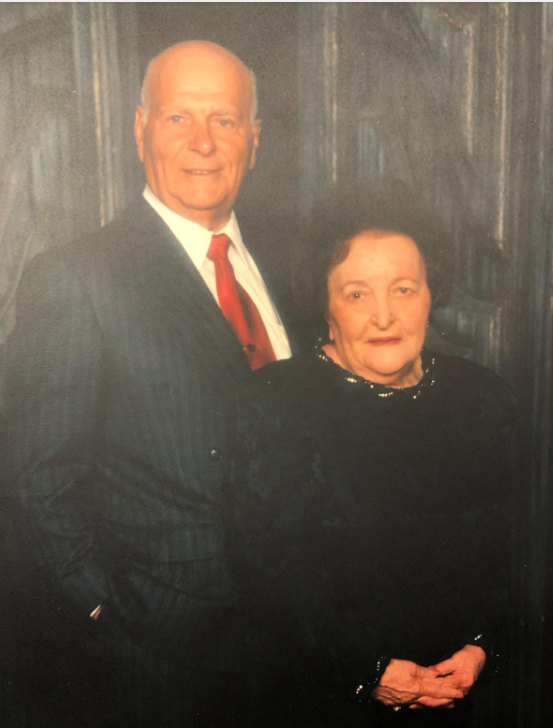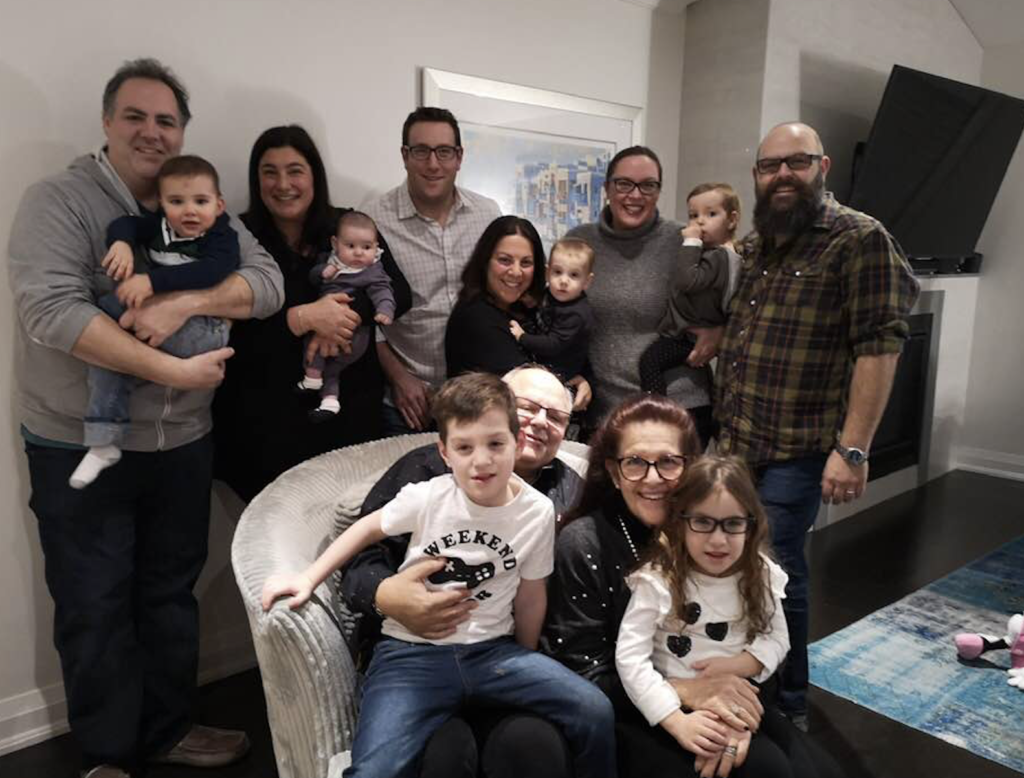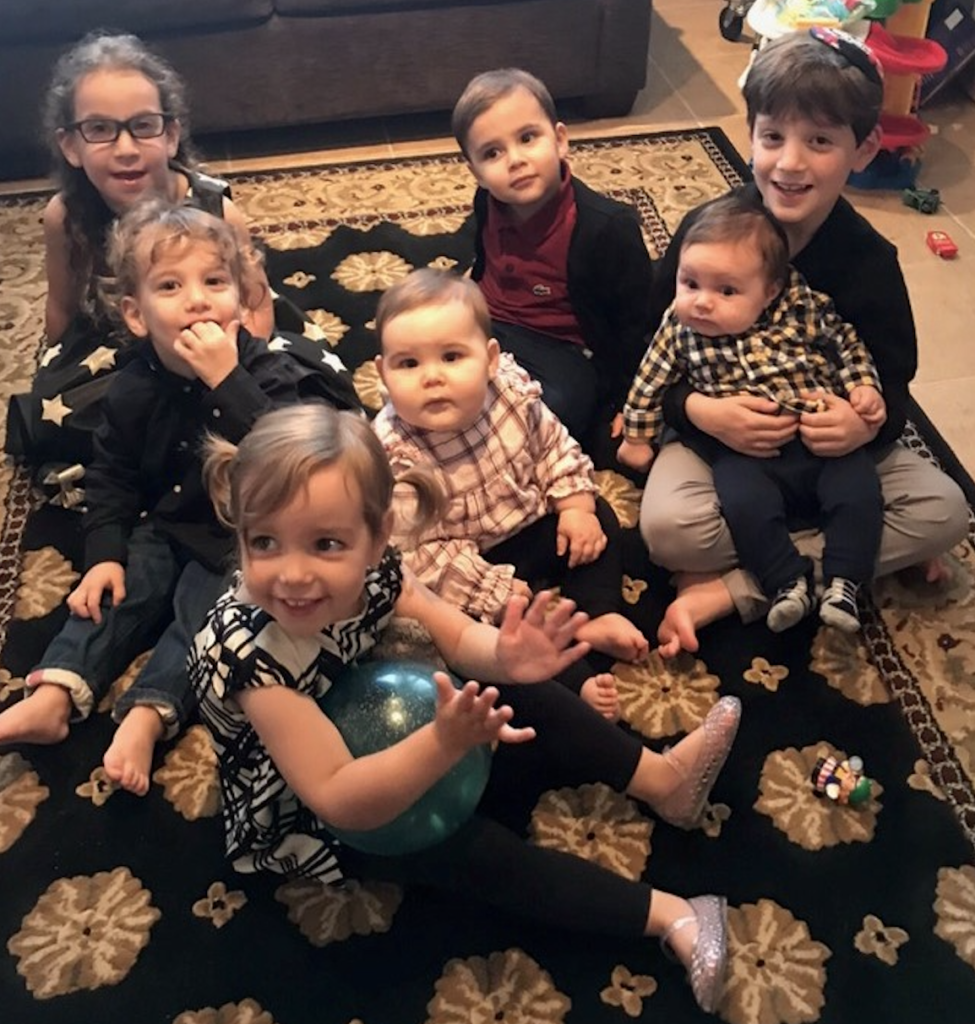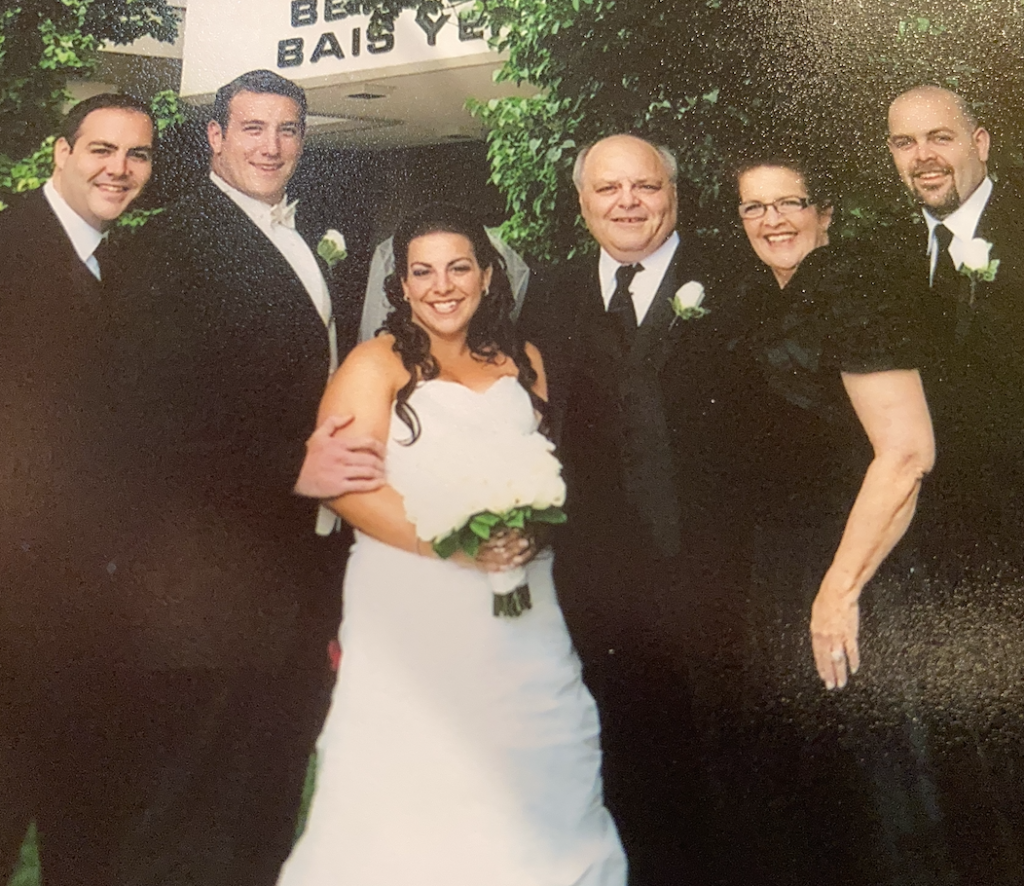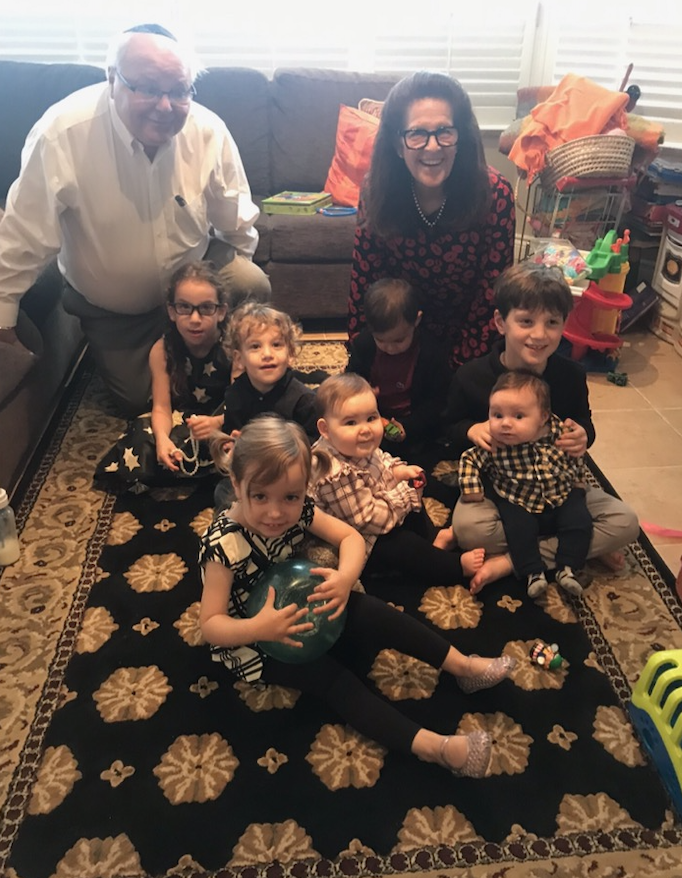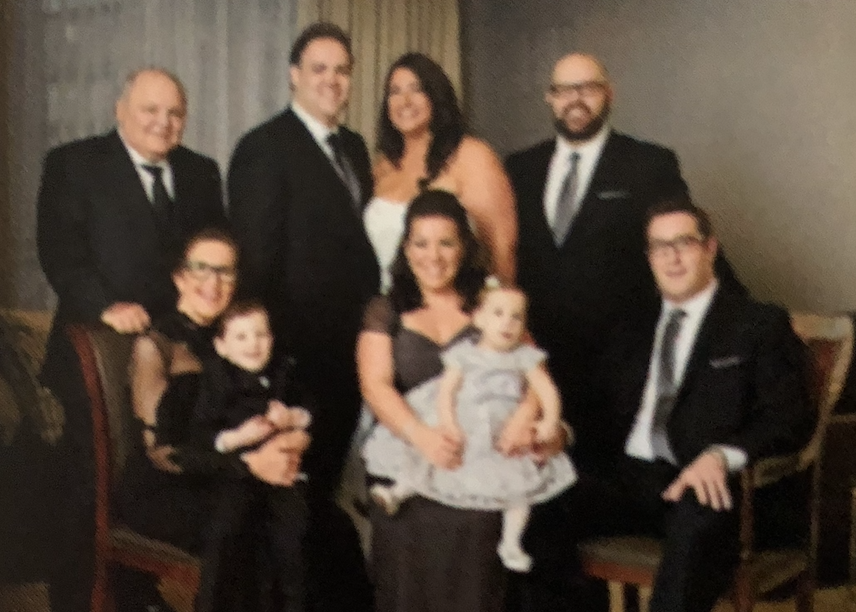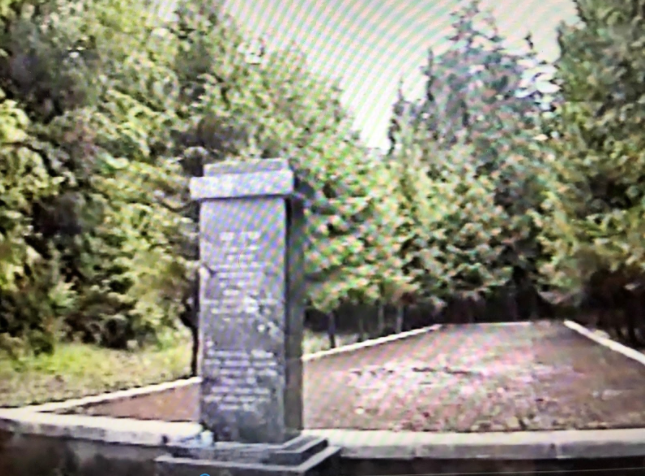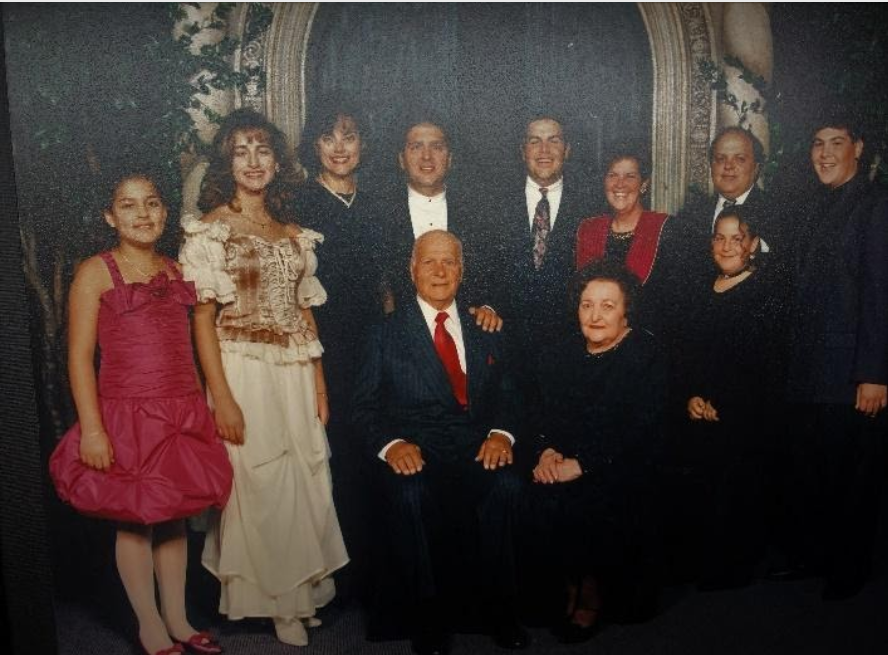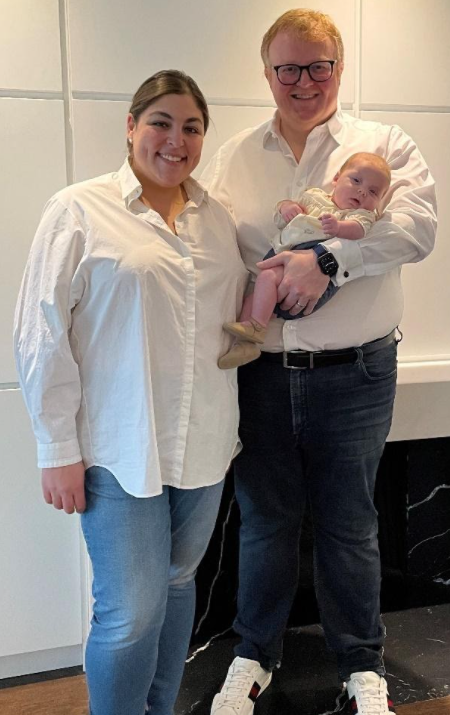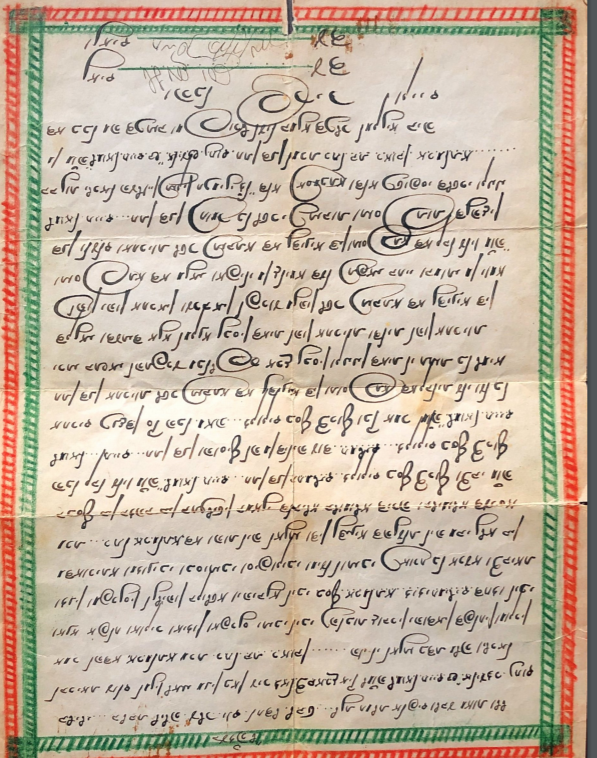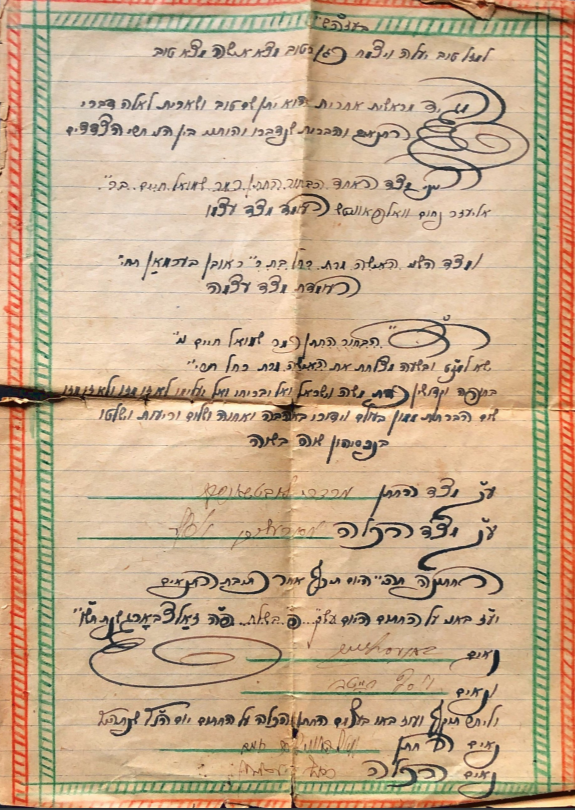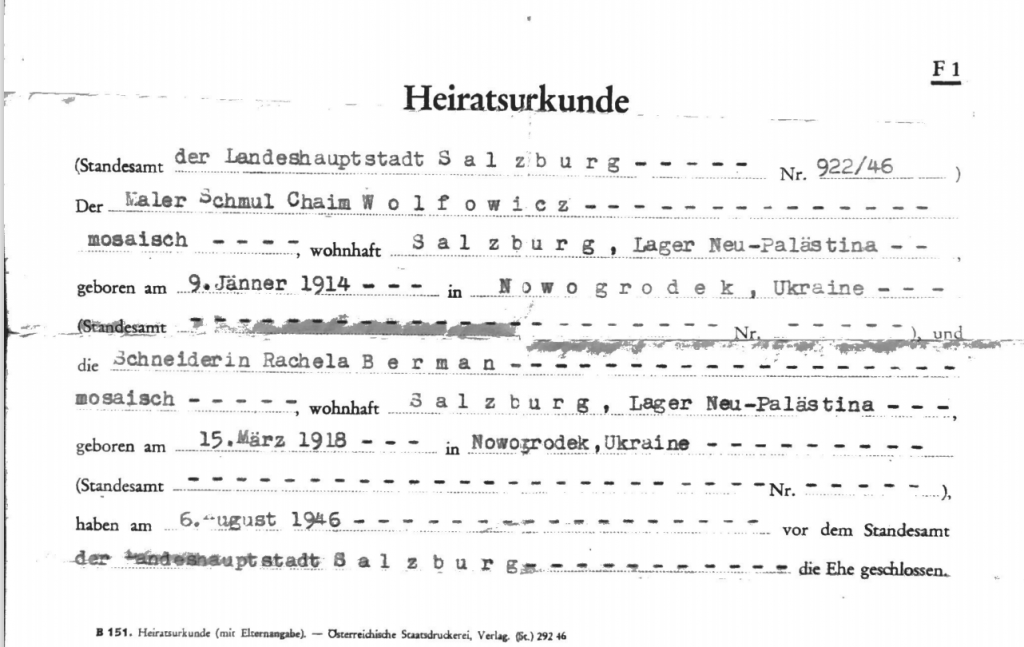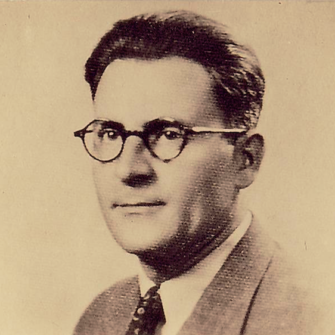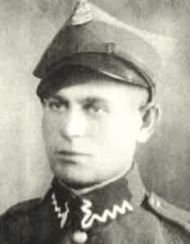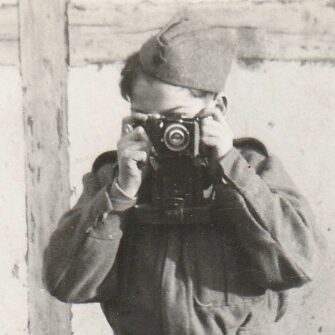Rochel (Rose) Wolfe née Berman was born on March 15, 1918, in Novogrudok, Poland (now Belarus). There was a thriving Jewish population in Novogrudok of 6,500. Jews comprised half of the town’s population.
Rochel was the daughter of Rueven and Sarah Berman. She was eighteen months old when her mother passed away and only knew her stepmother, Rivka, whom her father married a year later. Rochel grew up in a blended family with seven siblings: Zisel, Avram, Gershon, Meir, Bella, Rivka, and Raisl. They were a close-knit, generous family. In the Berman home, there was always a chair at the dinner table and a place to sleep for anyone in need.
Before the war, Rochel was a dressmaker’s apprentice to a woman named Henia Berman. In 1939, when she was twenty-one, Rochel married Eliahu Ostashinski, a young man she knew from school. On June 27, 1941, Rochel gave birth to Sara Frayda.
During the first years of the war, Novogrudok was under Soviet occupation. Just as Sara was born, the German Army invaded and Rochel’s peaceful life drastically changed. Much of Jewish Novogrudok was destroyed during German bombings. German forces entered the town on July 4, 1941, killing dozens of Jews. Anti-Jewish laws were put into effect. Jewish homes were plundered and one of Rochel’s married brothers was taken away. The family never learned his fate. Over the next few months, groups of Jewish men were rounded up, publicly tortured, and murdered in the town square. Others were taken from the streets and forced to dig ditches for mass graves.
The Jews of Novogrudok and its surroundings were murdered in a number of mass killing operations from July 1941 until May 1943. In December 1941, a ghetto was established in the area, in which the Jewish laborers and their families were concentrated. On December 5, 1941, the Jews of Novogrudok were forcibly taken to the town’s bombed-out courthouse. They were allowed to bring only what they could carry. The shattered windows let in the bitter cold as Rochel, Eliahu, and their child huddled together to stay warm. They were forced to stay at the courthouse for two days. Some Jews were shot trying to escape. Others tried to believe everything would be all right, thinking back to the German Army’s decency during World War I. On December 8 the elderly, many women and children, and men without occupations useful to the Germans were selected for death. Rochel was caring for her late brother’s two young sons, Yankel and Yitzak. She was told they could only keep one of the boys. Twelve-year-old Yankel was spared. That day, Yitzhak and most of Rochel’s family were shot into mass graves.
After the selections, Rochel, Eliahu, their daughter Sara, and Rochel’s sister, Bella, were taken to a ghetto near Novogrudok, where they shared one small room with eight people. Through the kindness of their gentile neighbors and friends, who risked their lives to bring them food, they were spared from starvation. A Russian police officer named Karpilovski, who had been a recipient of the Berman’s generosity, never forgot the family’s kindness. When the Germans emptied the ghetto of food, Karpilovski came at night to deliver bread and milk to Rochel’s family. “Don’t worry, as long as I live, you won’t be hungry,” Karpilovski assured them. Despite the horrible conditions, the ghetto brought them together like one family. If one person hurt, everyone hurt.
In August 1942 there was another large Aktion in Novogrudok. Rochel and her family hid with others in a basement. As the Germans and their collaborators came near, Rochel was forced to suffocate her three-year-old daughter to keep her quiet and save everyone else who was hiding with them. Reeling from this indescribable loss, Rochel and Eliahu made plans to escape the ghetto along with Rochel’s nephew, Yankel Berman. They made contact with a gentile friend who lived nearby the ghetto. In exchange for Rochel’s valuable coat, the friend arranged to have a rifle waiting for them upon their escape. Timing their escape by the guards’ movements, they fled to a contact house outside of the town, where they reunited with Rochel’s sister, Bella. From the contact house, they made their way into the Naliboki Forest to join the Bielski Brigade.
The Bielski brothers grew up in a rural village near Novogrudok. After the rest of their family perished in the ghetto, the brothers fled to the forests and created a partisan group focused on saving Jewish lives. It was October 1942 when Rochel’s family met up with the Bielskis. They arrived at dawn, and Rochel looked around as the camp began to awake. In the morning light, she found women patrolling the camp and cooking over fires as men returned with food scavenged from the villages and farmers. At this time the partisans numbered 60. In the two years Rochel and Eliahu stayed with the Bielski Brigade, the number grew to 1200.
Eliahu taught incoming partisans how to use a rifle and participated in missions to sabotage German communications. Young Yankel also served as a partisan and helped derail German trains. Rochel cooked for the partisans and guarded the camp. In summer, they slept in tent-like structures. In the winter, they built underground bunkers. The camp grew into a small village with a bakery, bathhouse, shoemakers, and tailors. The Germans struggled to locate the partisans, and when they got close, the group escaped. They waded through water and wilderness before finding a new place to build a camp. Despite the many life challenges with the partisans, the good outweighed the bad for Rochel and her family. In the ghetto, they were treated like animals. With the partisans, they were free people. Sequestered away in the vast forest, they could sing, dance, and rebuild their shattered lives.
Toward the end of the war in the east, as the Soviets pushed forward, the partisans engaged in heavy battles with the retreating German Army. Just as the Soviets arrived to liberate the forest on July 8-9 1944, Eliahu was killed in battle. No one dared tell Rochel what had happened to her husband, and when they did she refused to believe that Eliahu was dead. It was only when she went to the hospital tent and overheard two injured partisans list the names of those who had fallen that day that she could face his death.
Two days after the liberation, Rochel, Bella, and Yankel returned to Novogrudok. Their friend, Sabina, took them into her home. Rochel was numb from the shock of her losses during the war and it was two weeks before she was willing to leave Sabina’s home. Rochel moved into her brother’s former house and, after a time, Bella married Motke Lubchansky and moved into a neighboring city. They sent their nephew Yankel to Poland, fearing he would be conscripted into the Soviet Army.
Bella had a baby she named Reuven, after their father, and Rochel traveled back and forth to help. She soon decided to sell her house and move to Poland. After Rochel refused to sell the house to a man she did not trust, he fabricated a story in which he told the Soviet Secret Police that Rochel wasn’t visiting her sister in the city but selling on the black market. One day, when Rochel was visiting, the police burst into Bella’s home and confiscated everything they had, including gold left by their father. The sisters were both arrested and forced to leave one-month-old Reuven alone. Although Bella was soon released, Rochel was kept in prison for three days. She was released from jail only when she told them where there was more gold hidden.
Rochel fled Russia with Bella, her brother-in-law, and Reuven. They traveled through Poland, first to Białystok, then for three months in Lodz. In Lodz, Rochel met Chaim Wolfe, an old acquaintance from Novogrudok and her brother-in-law’s friend. They married eight months later, on January 17, 1946, in the Salzburg DP camp of Parsch,
Rochel and Chaim immigrated to Canada and arrived in Halifax, Nova Scotia, on February 13, 1948. They settled in Toronto, where Rochel initially worked in a factory and later managed a clothing store with her husband. She adopted the English name, Rose. It was a difficult and challenging life. She worked hard, not only looking after her family but working in the store and sewing late into the night. Rochel felt great happiness at the birth of her sons, Martin and Ralph.
Only three Berman siblings survived the Shoah. Rochel’s sister Bella and her family immigrated to New York, and Rivka, an avid Zionist, immigrated to Palestine in 1937 at age 22. Rochel and Rivka were reunited forty-six years later at Martin’s Bar Mitzvah in Toronto. After the liberation, her nephew Yankel (Rochel was like a mother to him) went to fight in Palestine and helped in building the new Jewish state. He helped construct Israel’s parliament building, the Knesset. Yankel’s name is inscribed on its cornerstone.
Rochel was sustained through the Holocaust by her faith and her desire to see the end of the Nazis and their collaborators. Although she suffered terribly from nightmares about the war, Rochel tried to keep the horrors of her experience to herself in order to spare her family from pain. She persevered with the positive attitude that had given her the strength to survive. Knowing she had prevailed gave her comfort. Her greatest pleasure was as the matriarch of her growing family. Rochel passed away at the age of 83 on June 5, 2001. She is survived by two sons, Martin and Ralph, five grandchildren, and ten great-grandchildren.
Rochel’s family’s experiences with the Bielski partisans were portrayed in the 2008 movie, Defiance. Of the 1,200 Jews under the Bielski leadership, there are now more than 20,000 offspring.

